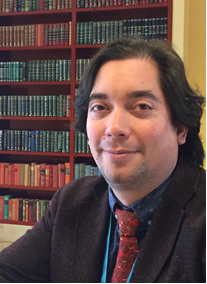
Organization/Department
Polytechnic University of Madrid
Associate Professor in the Mechanical Engineering Department
Biography
Andrés Díaz Lantada is an Associate Professor at Universidad Politécnica de Madrid (UPM), Spain. He obtained his Ph.D. in Mechanical Engineering at UPM in 2009. After his Ph.D., he has worked for 15 years as a researcher at the Mechanical Engineering Department of this University and collaborated actively with its UPM Product Development Laboratory, which he leads since 2015, both in research and teaching tasks. His current research interest focuses on the design of innovative medical devices, by combining additive manufacturing technologies, CAD & engineering tools, and smart materials for improving diagnostic and therapeutic applications of biodevices. These include advanced tissue engineering scaffolds within the INKplant EU project, in which he leads the participation of UPM, and 4D printed medical devices within the i-MPLANTS-CM synergy project from Madrid’s Government, which he coordinates. He also pursues international cooperation in the field of medical devices and is involved in collaborative projects, between the EU and Africa, for the promotion of open-source freely available medical devices for all. He has been awarded the Medal of the Spanish Royal Academy of Engineering to researchers under 40 and different educational and research prizes.
Title of Talk
Design and manufacturing strategies for multi-scale, composite, shape-morphing, and smart scaffolds: From tissue engineering constructs towards living materials
Abstract
Additive manufacturing technologies have reshaped product design in the last couple of decades and are transforming the biomedical industry, by providing innovative and personalized approaches to solving healthcare problems. Tissue engineering and biofabrication are absolutely dependent on additive manufacturing advances, as the extremely complex geometries, micro-environments and biomechanical properties of living tissues cannot be adequately mimicked by using more traditional manufacturing techniques. Current research trends in medical additive manufacturing include the design and manufacture of multi-scale, multi-material and multi-phase constructs, for their use as tissue engineering scaffolds capable of providing cells with the correct epigenetic cues for successful repair and regeneration. Besides, shape-morphing structures, in connection with 4D printing principles, are being explored for promoting minimally invasive surgeries and for delivering structures capable of evolving with patients, according to their healing process or along their life. Such smart scaffolds enter the realm of living materials and may lead to a myriad of new biomedical applications. This presentation deals with varied strategies for the design and manufacture of innovative tissue engineering scaffolds and showcases preliminary results from INKplant EU and i-MPLANTS-CM research projects, which deal with polymeric, ceramic and metallic additive manufacturing for healthcare.
